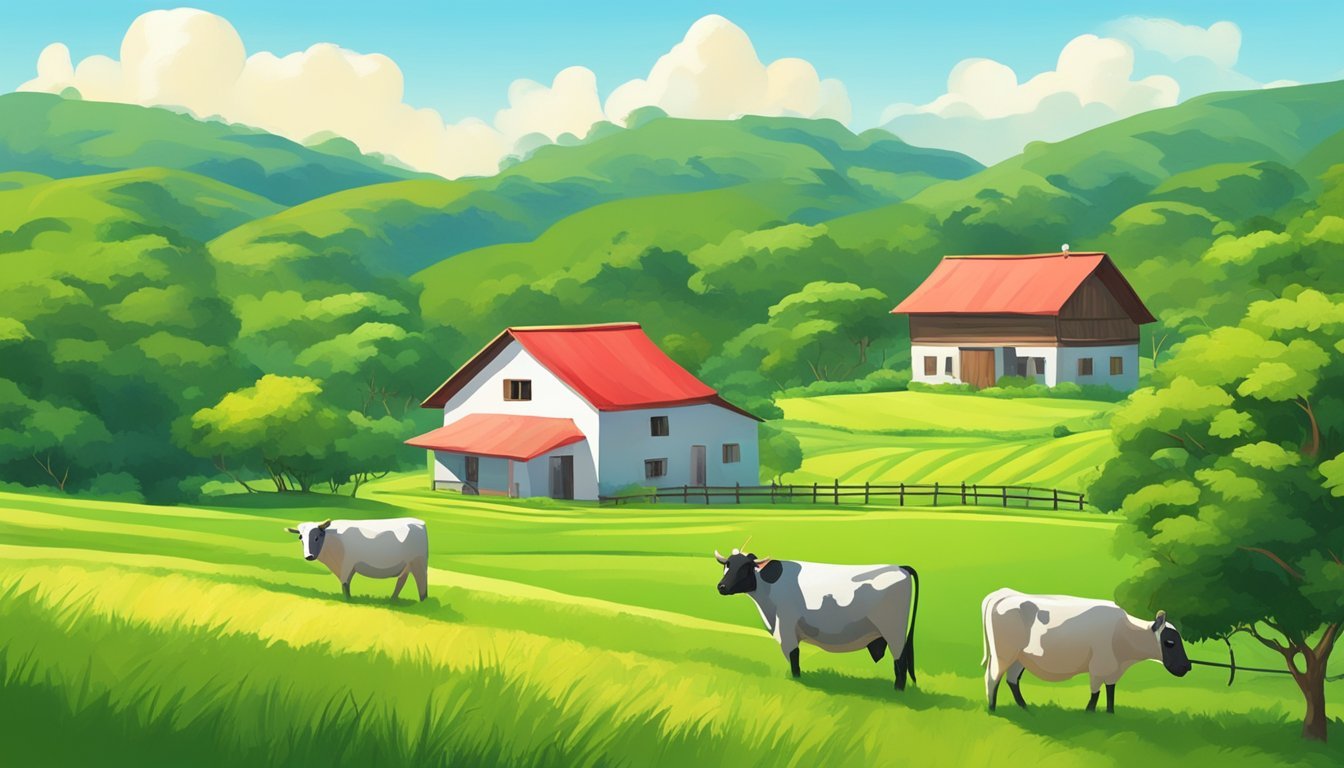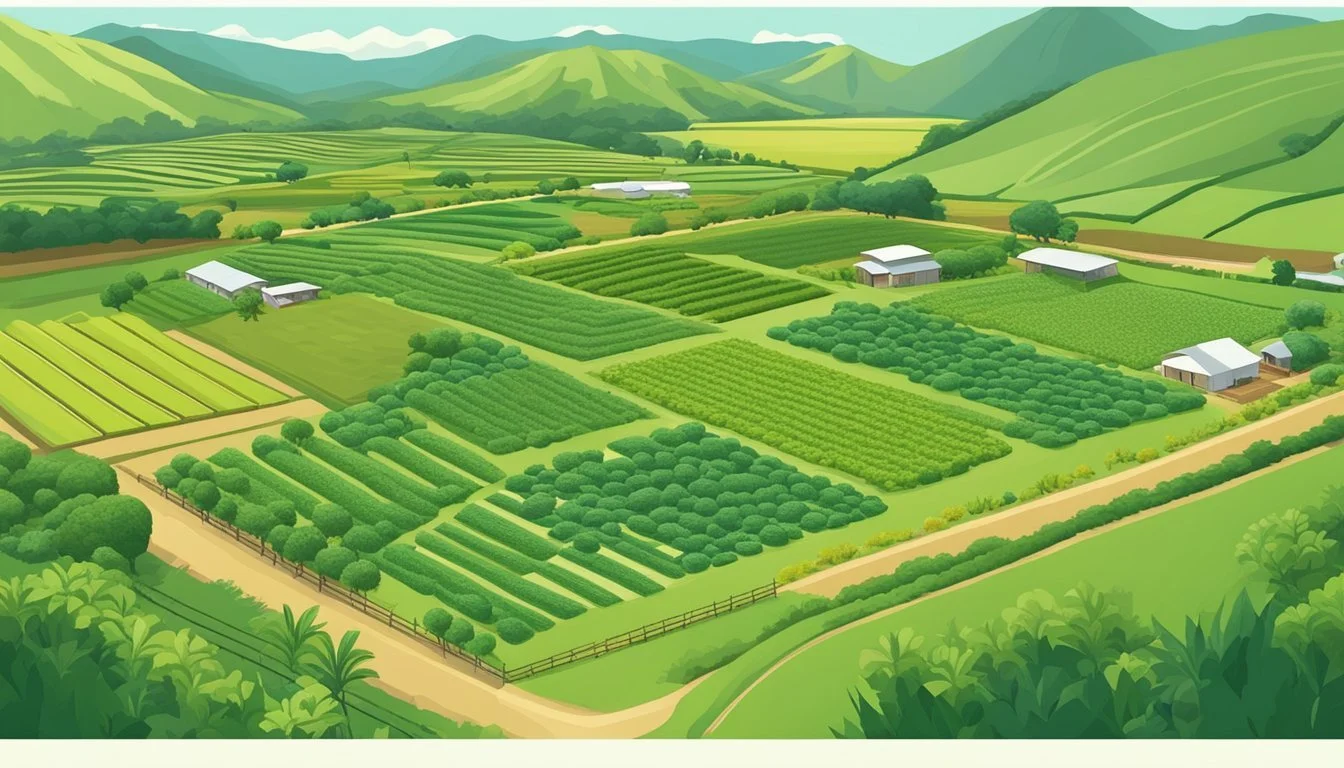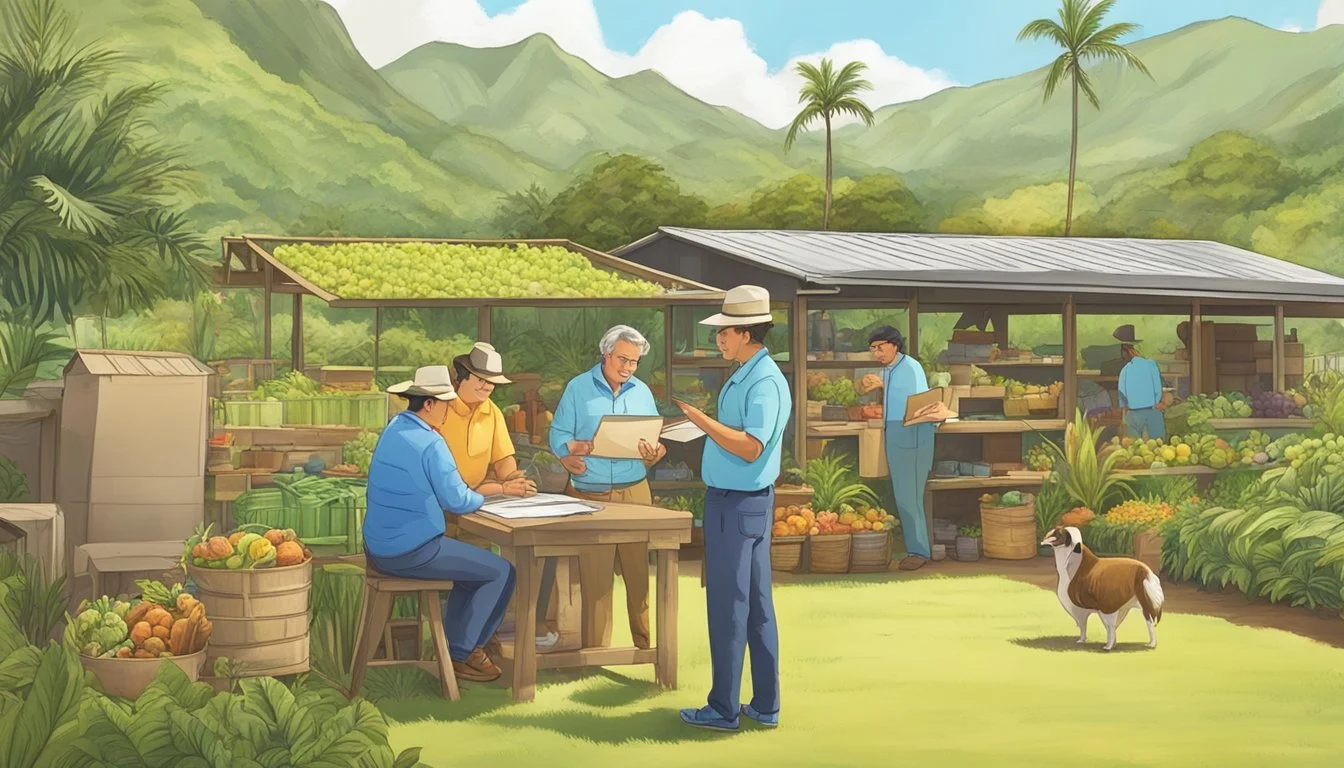Small Farms for Sale in Hawaii
Your Guide to Buying Paradise Property
This Article is Part of State-by-State Guide to Buying Your First Small Farm
The market for small farms in Hawaii offers a diverse range of opportunities for those interested in agricultural ventures or seeking a lifestyle change. Hawaii's unique climate and fertile soil provide an advantageous environment for a variety of crops, making these small farms not just homes but potentially profitable investments. With listings ranging from lush acreage on the slopes of volcanoes to parcels with ocean views, the real estate options in Hawaii are as varied as they are scenic.
Prospective buyers can find small farms throughout the Hawaiian Islands, with a concentration in areas such as Hawaii County and Maui County. These farms typically range in size from a few acres to several dozen, accommodating different preferences and budgets. Some properties come with established orchards or specialty crop operations, while others offer the raw potential to develop customized agricultural projects.
The purchase of a small farm in Hawaii is not merely a real estate transaction; it's a step into a lifestyle deeply connected with the land and the nurturing climate of the islands. As a result, finding the right property involves considering the unique features of each island, the micro-climates of various regions, and the kind of agricultural pursuit or living experience one wishes to achieve. With the current selection available, from turnkey operations to undeveloped land, interested parties have a solid foundation to start their search for a small farm that meets their needs and aspirations.
Overview of Hawaii's Real Estate Market
The Hawaii real estate market offers a unique blend of limited land supply and premium pricing, influenced by the islands' natural beauty, desirable climate, and agricultural potential.
Current Market Conditions
In Hawaii, the average listing price for land continues to be a central consideration for potential buyers. Prices may range significantly based on factors such as location, accessibility, and amenities. For example, on the Big Island, the price per acre varies widely from more economical parcels priced under $100,000 to larger, highly-valued properties costing upwards of a million dollars.
Table: Sample Price Ranges for Hawaii Farm Land
Price Point Size of Property Location $299,000 12 acres Hawaii County, Captain Cook $1,350,000 5.22 acres Hawaii County, Hawi $1,995,000 7 acres Hawaii County, Captain Cook $1,125,000 3.27 acres Unspecified
Understanding the Hawaii Land Landscape
Hawaii's geography and land-use policies strongly dictate the types of land available for sale. Land designated as Agricultural (AG) often presents opportunities for small farms, with varying parcel sizes from under 10 acres to larger acreage suitable for diverse farming. Certain properties provide foundational structures such as barns or stables and may offer features like stream frontage, ocean, or mountain views.
Land Classification Example
Undeveloped: Land in its natural state, potentially needing significant investment for agriculture.
Residential: Smaller parcels, sometimes with existing dwellings or suitable for building.
Farms: Land with some level of infrastructure to support agricultural activities.
The real estate landscape in Hawaii is complex, with properties fetching a premium due to the islands' finite space and rising demand. Buyers must navigate the nuances of the market, balancing acreage, location, and permissible land use to find suitable properties for farming ventures.
Types of Small Farms Available
Hawaii offers a diverse selection of small farms catered to various interests, whether for leisure, sustainable living, or agricultural business.
Hobby Farms
Hobby farms in Hawaii are typically smaller plots where individuals engage in farming for pleasure rather than for income. With properties such as a 5.22-acre farm in Hawaii County and similar listings, hobbyists can enjoy growing tropical fruits, vegetables, or engaging in small-scale poultry rearing.
Rural Mini Farms
Rural mini farms provide a blend of private living and space for cultivating crops. They usually range from 3 to 10 acres and are ideal for those looking for a personal farming experience. These farms might include diversified agriculture, allowing for a variety of produce to be grown and even direct sales to local markets.
Country Farmettes
Country farmettes in Hawaii can offer a tranquil lifestyle with more substantial acreage, typically ranging from 10 to 30 acres. These smaller-scale farms can sustain a family's need for self-sufficiency, with enough land for various crops and small herds of livestock like goats and sheep.
Acreage for Livestock
For buyers interested in raising animals, acreage for livestock is available, providing the space needed for goats, sheep, or poultry. Land parcels can range widely, but a 12-acre property, for instance, offers ample space for pastures and facilities to house and manage a healthy flock or herd, ensuring animals have the grazing area and care facilities they need.
Investment Potential and Trends
The investment potential in Hawaii's small farms is underscored by consistent demand and a recognizably limited supply of arable land. Trends in Hawaii have shown a varying range in property prices, largely dictated by location, land size, and the amenities provided.
Historical Price Trends
The historical price trends of small farms in Hawaii reflect a steadily increasing value. Although prices fluctuate based on a number of factors, such as location and the characteristics of the land, the overall trend has been upward. The following illustrates past pricing data for small farms in the market:
Average Purchase Price: Depending on the location and acreage, the average purchase price has varied, but a noticeable increase year over year can be observed.
Median Purchase Price: A more stable indicator, the median purchase price provides insight into the central tendency of the farm pricing spectrum.
Future Market Projections
Hawaii's unique environment positions small farms favorably for future value retention and growth. Market projections take into account:
Limited availability of arable land supports a strong projection for future prices.
The average purchase price and median purchase price are both expected to trend upwards as demand remains robust against a finite supply.
Fluctuations exist, but the overarching expectation is that small farm properties in Hawaii will continue to be a solid investment choice.
Buying Process for Small Farms
The purchasing process for small farms in Hawaii involves a series of well-defined steps, from initial property search to financing and closing. Prospective buyers should be prepared for a competitive market, with listing prices that reflect the unique agricultural and geographical characteristics of Hawaii.
Searching for Properties
Buyers should begin by identifying their requirements for a farm, including acreage, location, and soil type. They may utilize online listings which often categorize land for sale by island and county, providing snapshots of property features and listing prices. Properties may range from a few acres to larger estates, and prices can vary significantly. For example, recent listings in Hawaii county show a 12-acre property in Captain Cook for $299,000, and a 5.22-acre farm in Hawi at $1,350,000.
Financing Options
Securing financing is a crucial step in the farm buying process. Buyers must explore various financing options suitable for agricultural properties, which may include traditional mortgages, farm credit services, or special agribusiness loans. The purchase price of the farm as well as the buyer's financial standing will influence the terms of financing. It is important to obtain pre-approval before making an offer, to ensure the buyer is a competitive candidate in the market.
Making an Offer and Closing
Once a property has been selected, buyers will make an offer. This should be a formal written proposal that specifies the purchase price and any conditions of the sale. Negotiations may take place if the seller counters the offer. After both parties agree on the terms, the closing process involves a thorough inspection, securing of title insurance, and a final walk-through. Upon successful completion, the transaction is finalized and ownership is transferred. It is essential for buyers to stay well-informed and attentive throughout this process to ensure a smooth transition.
Considerations for Buyers
When purchasing a small farm in Hawaii, buyers should pay close attention to zoning laws and the results of property inspections and appraisals. These factors greatly impact the usability, value, and future potential of the property.
Zoning and Land Use Regulations
Zoning Laws: In Hawaii, zoning laws determine how land can be used. Small farms for sale might fall under agricultural or rural zones and each comes with specific regulations regarding land development and use.
Agricultural Zones: Typically require a larger minimum average property size, which promotes farming activities.
Rural Zones: May allow for smaller property sizes and a mix of residential and agricultural use.
Land Use: Buyers should verify that their intended use for the farm aligns with the county's land use plans to avoid legal issues and fines.
Inspection and Appraisal
Inspection: An inspection is essential to uncover any potential issues with the land or its structures. Buyers should look for:
Soil quality and health
Water rights and irrigation systems
Structural integrity of existing buildings
Appraisal: The appraisal provides an estimate of the property's value. Factors influencing the appraisal include:
Property Size: Larger properties may offer more agricultural opportunities but come with a higher price tag.
Location and Accessibility: Properties in desirable locations or with better access to markets can command higher prices.
Living and Farming in Hawaii
Hawaii offers a unique blend of tropical climate and fertile soil, which makes it an ideal location for small-scale farming. The state boasts a strong community focused on sustainability and local agriculture.
Lifestyle and Community
Hawaii’s farming communities are characterized by their camaraderie and commitment to a sustainable lifestyle. Individuals interested in joining these communities often seek out small farms for sale, ranging from a few acres to larger parcels. For example, a listing reveals a 12-acre farm in Captain Cook and a 5.22-acre establishment in Hawi. These small farms provide a rich opportunity for living close to the land and forming tight-knit relationships with fellow farmers and locals.
Agriculture and Sustainability
The agriculture in Hawaii is as diverse as it is sustainable. With a variety of acreages available, prospective farmers can find properties that suit their farming goals. Properties range from under 10 acres to those over 50 acres, supporting a range of agricultural activities from organic produce to coffee plantations. Emphasizing sustainability, Hawaii's farm community often incorporates green practices, such as renewable energy and water conservation methods, to ensure that their farming has minimal impact on the islands' delicate ecosystems.




